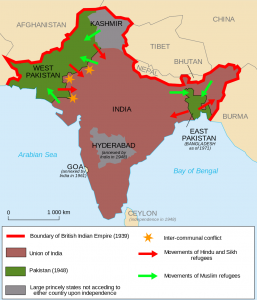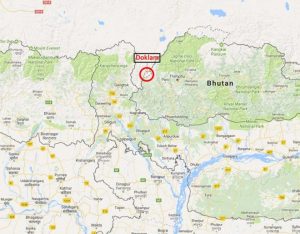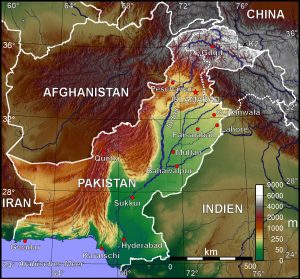Deceptive Narratives
In politics, and especially in international relations, what you see is not always what you get. Recently, in a televised address from a US military base in Fort Myer, Virginia, President Donald Trump announced that he would send more troops to Afghanistan. Even though Trump called for the withdrawal of US troops from Afghanistan during his election campaign for the presidency, he said that he had changed his mind and planned to step up the war against Islamic terrorism. Trump said that Afghanistan would come under greater pressure to reform its military, and root out corruption in its bureaucracy. “Our support is not a blank cheque. Our patience is not unlimited.” He also said that Pakistan had to stop providing a haven for terrorists, warning that Islamabad would have “much to lose” if it didn’t comply. Citing “principled realism”, Trump said his approach was different from the Obama administration because it allowed military commanders to make key decisions based on “conditions on the ground and not arbitrary timetables”. There were few details about how many troops would be sent, or how long they would stay in Afghanistan. However, in June 2017 Trump agreed to increase the current US force of 4800 soldiers in Afghanistan by 3900. The Pentagon delayed the extra deployment while awaiting a strategy. The US Secretary of Defence, James Mattis, said in addition to the extra deployment, several NATO allies have also “committed to increasing their troop numbers” above the current thirteen-thousand NATO troops in Afghanistan.
 This has major implications not only for the United States, but also for southern Asia. For the US populace faced by growing polarisation and domestic problems, Trump’s declaration against Islamic terrorism in Afghanistan is a way to focus the country’s attention on an external enemy. Terrorist attacks in Paris, Brussels, London, Barcelona, Berlin, and in smaller locations such as Manchester and San Bernadino show that terrorism is clearly a serious problem. What is less obvious is that blaming Pakistan for harbouring terrorists is being used as a pretext for something much greater. While local US attention focuses on sending more soldiers to a forgotten war, and inevitable reports of Afghan fatigue, Trump’s publicly-stated strategy is to stabilise Afghanistan and eventually bring the Taliban to the negotiation table. The Taliban take a jaundiced view saying that the United States is arrogant, still believing in its force and might. However, the situation in three other countries in south Asia is far more revealing than Trump’s declaration in Fort Myers.
This has major implications not only for the United States, but also for southern Asia. For the US populace faced by growing polarisation and domestic problems, Trump’s declaration against Islamic terrorism in Afghanistan is a way to focus the country’s attention on an external enemy. Terrorist attacks in Paris, Brussels, London, Barcelona, Berlin, and in smaller locations such as Manchester and San Bernadino show that terrorism is clearly a serious problem. What is less obvious is that blaming Pakistan for harbouring terrorists is being used as a pretext for something much greater. While local US attention focuses on sending more soldiers to a forgotten war, and inevitable reports of Afghan fatigue, Trump’s publicly-stated strategy is to stabilise Afghanistan and eventually bring the Taliban to the negotiation table. The Taliban take a jaundiced view saying that the United States is arrogant, still believing in its force and might. However, the situation in three other countries in south Asia is far more revealing than Trump’s declaration in Fort Myers.
India
 As part of what Trump called a regional approach to stamping out terrorism, he called on India to play a greater role in Afghanistan. According to Afghanistan’s Ambassador to India, New Delhi already has deep strategic relations with Kabul. Shaida Abdali says India has given more than three Billion dollars in aid to Afghanistan in such projects as building more than 200 schools, sponsoring more than one thousand scholarships and allowing more than sixteen-thousand Afghan students to study in India. Abdali says New Delhi has also helped build such key structures as roads, highways, dams, and electrical transmission lines in Afghanistan, in addition to training Afghan military officers, making India South Asia’s largest donor to Afghanistan. As far as other regional relationships go, India and China are currently involved in one of their worst border disputes in more than 30 years. On the same day as Trump’s speech in Fort Myers, India’s NDTV showed Indian and Chinese soldiers throwing stones at each other, and even in hand-to-hand combat. They were at Pangong Lake in the Himalayas on a disputed stretch of the Indo-Tibetan border. NDTV says the scene was recorded a week earlier on the 15th of August, India’s Independence day. Indian media say the two-hour skirmish erupted when Chinese troops tried to enter Indian territory beside the lake. On the 18th of June, elsewhere in the Himalayas, Indian troops answered a request for help from Bhutan, and entered the Doklam Plateau to stop the
As part of what Trump called a regional approach to stamping out terrorism, he called on India to play a greater role in Afghanistan. According to Afghanistan’s Ambassador to India, New Delhi already has deep strategic relations with Kabul. Shaida Abdali says India has given more than three Billion dollars in aid to Afghanistan in such projects as building more than 200 schools, sponsoring more than one thousand scholarships and allowing more than sixteen-thousand Afghan students to study in India. Abdali says New Delhi has also helped build such key structures as roads, highways, dams, and electrical transmission lines in Afghanistan, in addition to training Afghan military officers, making India South Asia’s largest donor to Afghanistan. As far as other regional relationships go, India and China are currently involved in one of their worst border disputes in more than 30 years. On the same day as Trump’s speech in Fort Myers, India’s NDTV showed Indian and Chinese soldiers throwing stones at each other, and even in hand-to-hand combat. They were at Pangong Lake in the Himalayas on a disputed stretch of the Indo-Tibetan border. NDTV says the scene was recorded a week earlier on the 15th of August, India’s Independence day. Indian media say the two-hour skirmish erupted when Chinese troops tried to enter Indian territory beside the lake. On the 18th of June, elsewhere in the Himalayas, Indian troops answered a request for help from Bhutan, and entered the Doklam Plateau to stop the  Chinese Liberation Army from building a road on disputed land. India says the land belongs to Bhutan. China claims the thin strip of land as its own. India sees China’s attempt to build a road there as a threat because the plateau leads to a narrow strategic passageway known as the Chicken Neck which crosses the Himalayas into India’s south-eastern provinces. China has since halted its construction. As many as 350 Indian soldiers have moved into the disputed area, backed up by a supply line and 2500 reinforcements. India has asked for talks to resolve the issue. China continues to blame India for violating the consensus for maintaining peace along their common border, and warns of a military escalation if New Delhi doesn’t withdraw its soldiers.
Chinese Liberation Army from building a road on disputed land. India says the land belongs to Bhutan. China claims the thin strip of land as its own. India sees China’s attempt to build a road there as a threat because the plateau leads to a narrow strategic passageway known as the Chicken Neck which crosses the Himalayas into India’s south-eastern provinces. China has since halted its construction. As many as 350 Indian soldiers have moved into the disputed area, backed up by a supply line and 2500 reinforcements. India has asked for talks to resolve the issue. China continues to blame India for violating the consensus for maintaining peace along their common border, and warns of a military escalation if New Delhi doesn’t withdraw its soldiers.
India sees China One Belt, One Road as colonialism
Another sign of poor relations between India and China is New Delhi’s opposition to Beijing’s signature One Road One Belt project. China and Pakistan are building a multi-billion dollar economic corridor as part of the project, which not only helps China establish oil, road and rail links to Europe, the Middle East and Africa, it would revitalise Pakistan’s economy. India refers to the project as “a colonial entreprise that will infringe on the sovereignty of other nations” (http://quinndiplomacy.com/2017/07/19/on-the-move/). In addition India is not on good terms with Pakistan having fought three major wars since partition in 1949. They have also engaged in countless skirmishes over the disputed area of Jammu-Kashmir.
Pakistan
 Pakistan expressed surprise and scepticism at the United States’ tough new approach. The US Secretary of State, Rex Tillerson, says that if Islambad did not take measures against such groups as the terrorist Haqqani network in western Pakistan, then Washington could reduce US aid and military assistance, and even drop Pakistan as an ally. Rex Tillerson left little room for doubt: “We are going to attack terrorists wherever they live. If you are providing safe havens to terrorists, be forewarned.” Pakistan’s Ministry of Foreign Affairs called the idea that Pakistan is a haven for militant groups a “false narrative,” adding that the United States and Pakistan need to work together to eradicate terrorism. The Ministry says the main obstacle to peace and stability in the region is the conflict with India over Kashmir. A Senator in Pakistan’s parliament, and head of a think tank in Islamabad called Trump’s words little more than “contradictory bluster.” Sehar Kamram said Washington would isolate its friends in Islamabad, and wondered if Trump was deliberately underestimating the impact of increasing India’s presence on Pakistan’s western border. In Washington, Seth G. Jones, an Afghanistan specialist with the RAND corporation, a policy research institute, says “Afghanistan continues to be a proxy war between New Delhi and Islamabad, and both sides see it as a zero-sum game”. Barnett Rubin, an official with the State Department during the Obama administration, and now professor at New York University, says Pakistan is less dependent on the United States and has more room to manoeuvre now because of closer ties with China.
Pakistan expressed surprise and scepticism at the United States’ tough new approach. The US Secretary of State, Rex Tillerson, says that if Islambad did not take measures against such groups as the terrorist Haqqani network in western Pakistan, then Washington could reduce US aid and military assistance, and even drop Pakistan as an ally. Rex Tillerson left little room for doubt: “We are going to attack terrorists wherever they live. If you are providing safe havens to terrorists, be forewarned.” Pakistan’s Ministry of Foreign Affairs called the idea that Pakistan is a haven for militant groups a “false narrative,” adding that the United States and Pakistan need to work together to eradicate terrorism. The Ministry says the main obstacle to peace and stability in the region is the conflict with India over Kashmir. A Senator in Pakistan’s parliament, and head of a think tank in Islamabad called Trump’s words little more than “contradictory bluster.” Sehar Kamram said Washington would isolate its friends in Islamabad, and wondered if Trump was deliberately underestimating the impact of increasing India’s presence on Pakistan’s western border. In Washington, Seth G. Jones, an Afghanistan specialist with the RAND corporation, a policy research institute, says “Afghanistan continues to be a proxy war between New Delhi and Islamabad, and both sides see it as a zero-sum game”. Barnett Rubin, an official with the State Department during the Obama administration, and now professor at New York University, says Pakistan is less dependent on the United States and has more room to manoeuvre now because of closer ties with China.
China
 Trump made no mention of China when he accused Pakistan of offering a safe haven to terrorists. However, several hours after his speech in Fort Myers, China said “the international community should fully recognise the efforts made by Pakistan in fighting terrorism.” Hua Chunying, a spokeswoman for China’s Ministry of Foreign Affairs, said China hopes “that the relevant policy of the United States can be conducive to promoting the security and stability of Afghanistan and South Asia.” Although the language is neither forceful nor colourful, China’s message is clear: If the United States wants India to play a greater role in Afghanistan, Pakistan can always call on China. In his focus first on North Korea, then on domestic violence, then on terrorism in Afghanistan, what Trump is really doing in his efforts to “Make America great again” is taking a calculated gamble aimed at containing China.
Trump made no mention of China when he accused Pakistan of offering a safe haven to terrorists. However, several hours after his speech in Fort Myers, China said “the international community should fully recognise the efforts made by Pakistan in fighting terrorism.” Hua Chunying, a spokeswoman for China’s Ministry of Foreign Affairs, said China hopes “that the relevant policy of the United States can be conducive to promoting the security and stability of Afghanistan and South Asia.” Although the language is neither forceful nor colourful, China’s message is clear: If the United States wants India to play a greater role in Afghanistan, Pakistan can always call on China. In his focus first on North Korea, then on domestic violence, then on terrorism in Afghanistan, what Trump is really doing in his efforts to “Make America great again” is taking a calculated gamble aimed at containing China.
NOTE: Monday, 04 September 2017
India and China have reportedly pulled back their forces from the strategic Doklam Plateau in the Himalayas after agreeing to end their military stand-off.
Tags: Afghanistan, Beijing, China, Doklam Plateau, Fort Myers, India, Islamabad, Jammu-Kashmir, Kabul, Lake Pangong, NATO, New Delhi, Pakistan, Southern Asia, Taliban, Terrorism, United States, Washington
Excellent job Mr. Quinn. China will definitely become the single most influential country in the world with One Belt, One Road program. China is making more friends while USA prefers isolation and aggressiveness. Over the past couple of years, China has created strong economic and political ties with Europe and emerging economies in Asia and Africa. USA may try to tame China but control is simply a nightmare.
Very good insight!
Plus the chemistry between Trump and Modi: Back in June, each saw something he liked in the other’s political style, and both had a beef with China. Trump resents that China has rights to some big resource developments in Afghanistan. Modi, as you say, doesn’t like where the new silk road is leading. On the other hand, China is far more important for dealing with North Korea. Talk about layers on layers of interests and intrigue!
Thank you for yet another insightful article on the situation in Southern Asia and how many little-known aspects define policy in the region.